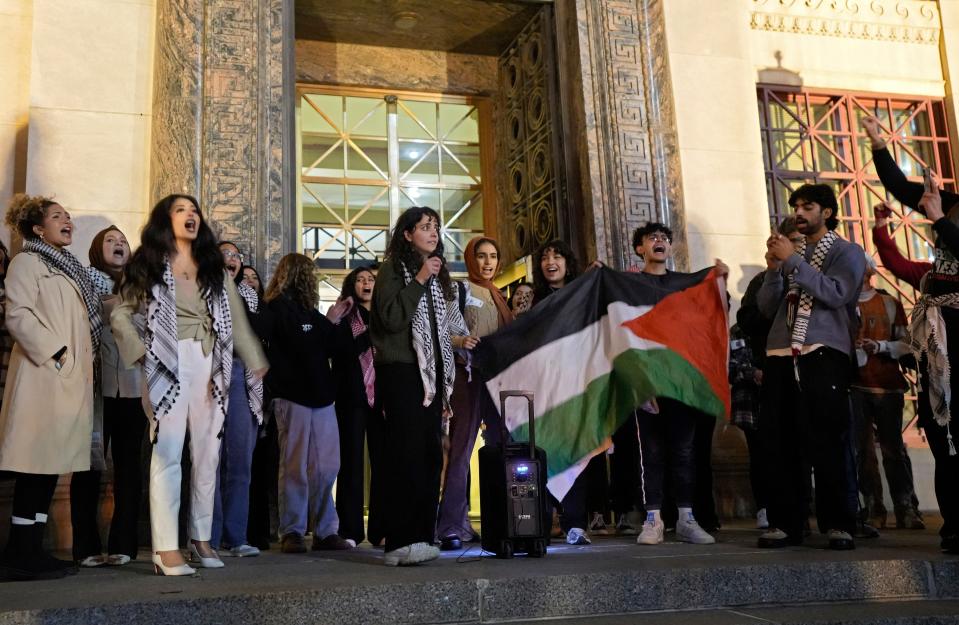Ohio Auditor: Columbus Council possibly violated state Open Meetings Law over ceasefire
The Ohio Auditor of State has notified the Columbus City Council that it may have "engaged in activity that if true would be in violation of" the state's Open Meetings Act.
In a letter dated May 1 that was emailed individually to each of the nine Democratic councilmembers, Republican State Auditor Keith Faber said that: "Information we received suggests that multiple Council members engaged in conversations and/or communications outside the public meeting concerning a matter of public concern; namely, the Council resolution regarding the Israeli-Hamas war."
Part of the evidence cited by Faber was a Dispatch story from late March that quoted an Instagram post by Councilmember Christopher L. Wyche, in which he said: “My office coordinated with other offices in trying to craft a Ceasefire Resolution that everyone could get behind. ... Unfortunately, we could not come to a consensus.”

"This gives the clear appearance that members of Council either circulated draft resolution language via hard copy or electronically among themselves and/or had discussions about draft resolution language among themselves with the goal of reaching consensus on final language, prior to debating, deliberating, and voting on a resolution during a public meeting," the letter says.
Ohio's Open Meetings Act, part of the state's "Sunshine Laws," sets forth requirements for a public body to conduct the public's business in public. It is well-settled Ohio Supreme Court case law that an official or formal action — even one taken in an open session — is invalid "if it results from discussions that improperly occurred outside of an open meeting,” Faber said in the letter.
"The act requires that not only the final vote be public, but also that the entire process be transparent to the public," the letter said, citing case law. "...In that vein, the (Supreme) Court has found conduct similar to that of Columbus City Councilmembers suggested in the Dispatch article to be in violation" of the Ohio Open Meetings Act.
Faber said his office hasn't "attempted to confirm the accuracy of these allegations," but requested that, if true, the City Council "cease and desist immediately."
Faber also instructed City Council to preserve any records associated with how it crafted the resolution, as state auditors will review the process in the next regular annual state audit, to gauge compliance with state open meeting requirements.
Jose Rodriquez, a City Council spokesperson, had no comment on the letter's allegation's Wednesday afternoon, saying it was still being reviewed. Marc Kovac, a spokesperson for Faber, also had no further comment on the letter, saying it spoke for itself.
After months of protests by pro-Palestinian demonstrators who disrupted several City Council meetings, and over the objections of local pro-Israel leaders, the Council unanimously passed a resolution in late March calling for "an immediate, sustained and mutual end to hostilities in Gaza." Up until that point, Council had resisted taking any official stance on the conflict, with members unable to agree on what to say.
@ReporterBush
This article originally appeared on The Columbus Dispatch: State Auditor received info City Council may have broken meetings law

